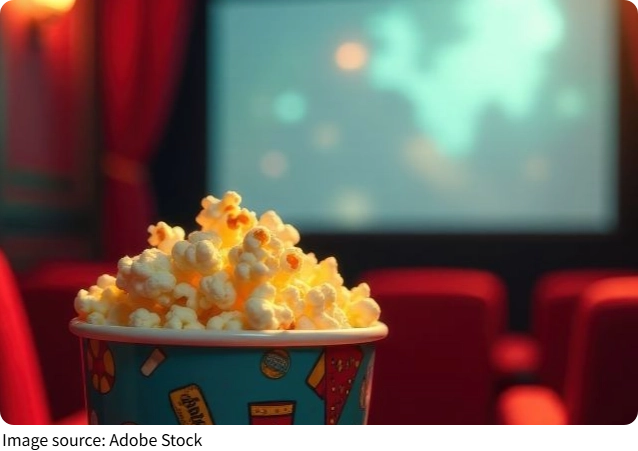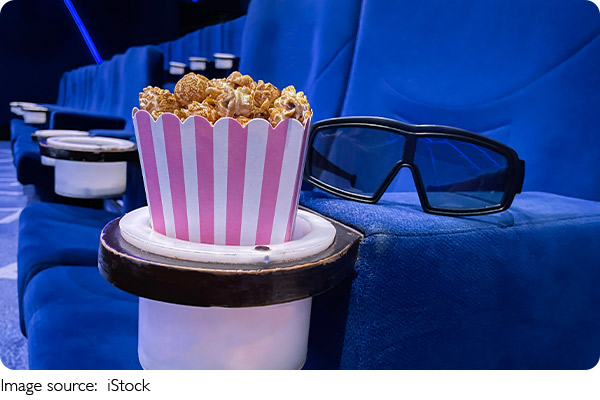AI Film Revolution

Have you ever wondered how artificial intelligence (AI) might change the movies we watch? The film industry is undergoing a remarkable transformation thanks to deep learning technologies.
From scriptwriting to visual effects, AI is becoming an indispensable part of modern filmmaking. Let's explore how this cutting-edge technology is reshaping cinema and what the future holds for filmmakers and audiences alike.
What Is Deep Learning and Why Does It Matter?
Deep learning is a subset of AI that uses neural networks to analyze vast amounts of data and learn patterns, much like the human brain. Unlike traditional programming, deep learning models improve themselves by exposure to more data. In film production, this ability allows AI to perform complex tasks—such as recognizing speech, generating images, or predicting audience reactions—with increasing accuracy.
AI in Scriptwriting and Story Development
One of the most exciting applications of deep learning in film is automated scriptwriting. AI programs can analyze thousands of scripts and story arcs, then assist writers in generating new plot ideas or dialogue suggestions. This doesn't mean machines replace human creativity but rather enhance it by offering fresh perspectives or helping overcome writer's block.
Some studios already use AI-driven analytics to predict what storylines will resonate with target audiences, potentially reducing the financial risks of movie production.
Visual Effects and CGI Enhanced by AI
Creating stunning visual effects (VFX) and computer-generated imagery (CGI) is traditionally time-consuming and costly. Deep learning models can speed up this process by automatically generating realistic textures, animating characters, or enhancing background environments. For example, AI can fill in missing frames to smooth motion or even create lifelike digital doubles of actors.
These advances allow filmmakers to realize ambitious visual ideas with greater efficiency and lower budgets.
AI-Assisted Editing and Post-Production
Editing is a crucial step where the film's narrative and pacing are shaped. AI tools can now assist editors by automatically selecting the best takes, organizing footage, or suggesting cuts that maintain emotional rhythm. Some platforms use facial recognition and emotion detection to identify the most impactful moments, making the editing process faster and more precise.
This collaboration between human editors and AI technology optimizes storytelling and improves the final product.
Enhancing Audience Experience with AI
AI also extends beyond production into how audiences consume films. Recommendation systems on streaming platforms use deep learning to analyze viewing habits and suggest movies tailored to individual preferences. In the future, AI might enable interactive storytelling where viewers influence plot developments, creating personalized cinematic experiences.
This evolution could redefine the traditional passive movie-watching model.
Ethical and Creative Considerations
While AI brings many benefits, it raises important questions. How much creative control should be ceded to machines? Will deep learning lead to formulaic films designed only to maximize profits? Filmmakers and scholars debate how to balance innovation with preserving artistic integrity.
Ongoing dialogue is essential to ensure AI supports rather than limits creative expression.
The Future Outlook: Collaboration Over Replacement
Industry experts agree that AI will not replace human filmmakers but rather become a powerful collaborator. The best results arise when AI handles routine or data-heavy tasks, freeing artists to focus on vision and emotion. Directors, writers, and technicians can harness AI tools to push boundaries and explore new storytelling forms.
The fusion of human creativity and artificial intelligence promises a vibrant future for cinema.

Conclusion: Imagine the Possibilities
As AI continues to evolve, so does its role in film production. From scripting to post-production and viewer engagement, deep learning is opening doors to new creative possibilities and efficiencies. What kind of movie would you create with AI as your assistant? Share your thoughts and imagine the future of filmmaking together!
-
 Sprinting Speed SecretsMaster the key techniques for explosive sprinting speed, including proper posture, cadence, and strength training.
Sprinting Speed SecretsMaster the key techniques for explosive sprinting speed, including proper posture, cadence, and strength training. -
 Aqua Azul: Nature’s SpellWill these dazzling blue cascades steal your breath—and your heart—faster than any beach escape ever could?
Aqua Azul: Nature’s SpellWill these dazzling blue cascades steal your breath—and your heart—faster than any beach escape ever could? -
 Base Makeup ChoicesHow we choose between liquid foundation, cushion compact, and BB cream in 2025 for flawless, natural-looking skin?
Base Makeup ChoicesHow we choose between liquid foundation, cushion compact, and BB cream in 2025 for flawless, natural-looking skin?